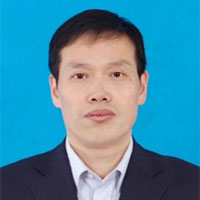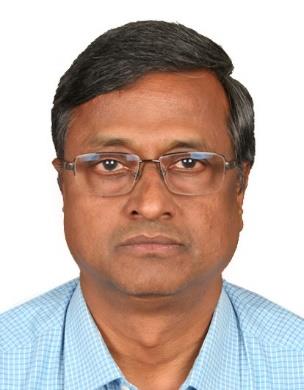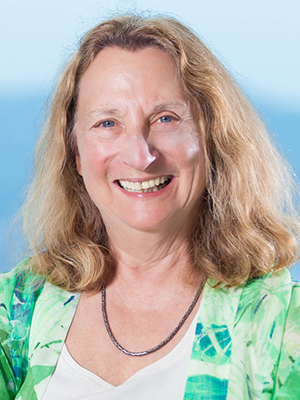Session 3
Program:
Presentation 1:
- "On manipulation of hydrodynamic instabilities of shocked gas-layer" by Professor Xisheng Luo, University of Science and Technology of China (USTC), China
International Shock Wave Institute Awards Ceremony:
- Professor Gopalan Jagadeesh, Indian Institute of Science (IISc) Bangalore, India
Presentation 2:
- "The Shock-Flame Complex –Its Occurrence and Importance in High-Speed Reactive Flows" by Professor Elaine Oran, Texas A&M University, USA.
Closing Remarks and Presentation about ISSW34 in Korea.
Timed Program:
| start time in AEST | running time (start - finish) | ||
| Fri 10 Dec 22:00 | 0:00 - 0:05 | Opening remarks | |
| Fri 10 Dec 22:05 | 0:05 - 1:10 | Talk 1: On manipulation of hydrodynamic instabilities of shocked gas-layer | Professor Luo Xisheng |
| Fri 10 Dec 23:10 | 1:10 - 1:30 | International Shock Wave Institute (ISWI) Awards | Professor Jagadeesh Gopalan |
| Fri 10 Dec 23:30 | 1:30 - 2:35 | Talk 2: The Shock-Flame Complex – Its Occurrence and Importance in High-Speed Reactive Flows | Professor Elaine Oran |
| Sat 11 Dec 00:35 | 2:35 - 2:50 | ISSW34 announcement video | |
| Sat 11 Dec 00:50 | 2:50 - 3:00 | Closing remarks |
About the Presenters:
Professor Xisheng Luo
 Dr. Xisheng Luo, is a professor of fluid mechanics at the University of Science and Technology of China (USTC). He received his Bachelor degree and Master degree in USTC at 1994 and 1997, respectively. After two years teaching at USTC, he went to Eindhoven University of Technology and received a Doctorate degree in Fluid Mechanics in 2004.
Dr. Xisheng Luo, is a professor of fluid mechanics at the University of Science and Technology of China (USTC). He received his Bachelor degree and Master degree in USTC at 1994 and 1997, respectively. After two years teaching at USTC, he went to Eindhoven University of Technology and received a Doctorate degree in Fluid Mechanics in 2004.
Then he has worked in the Shock Wave laboratory of Aachen University as a postdoc for four years. In 2008 he returned back to USTC and was appointed as a full professor. His research interest includes high-speed flow and interfacial instability. His research team developed a new method for generating convergent shock and extended soap film technique for interface formation. The work of the team led by Dr. Luo has published more than 20 JFM paper and 1 PRL paper on the interfacial instability induced by shock wave.
Professor Gopalan Jagadeesh
 Prof. Gopalan Jagadeesh is currently working as a professor in the Department of Aerospace Engineering, Indian Institute of Science (IISc) Bangalore, India. He is the Founder Chairman of Centre of Excellence in Hypersonics, IISc, Bangalore. He is also the Founder Director of Super- wave Technology Pvt. Ltd. a company formed with equity participation from IISc to commercialize several of his discoveries related to shock waves. Prof. Jagadeesh is one of the leading researchers in Hypersonic Aerothermodynamics and shock wave propagation in complex fluids, which are the most advanced fields of research relevant to space, defense and terrestrial applications. He has published over 300 papers in peer reviewed International Journals, conferences and edited 3 books. He has TWENTY-FIVE PATENTS on various discoveries related to Shock Waves and hypersonic flow control. He is currently the President of the International Shock Wave Institute and the also the Society for Shock Wave Research India.
Prof. Gopalan Jagadeesh is currently working as a professor in the Department of Aerospace Engineering, Indian Institute of Science (IISc) Bangalore, India. He is the Founder Chairman of Centre of Excellence in Hypersonics, IISc, Bangalore. He is also the Founder Director of Super- wave Technology Pvt. Ltd. a company formed with equity participation from IISc to commercialize several of his discoveries related to shock waves. Prof. Jagadeesh is one of the leading researchers in Hypersonic Aerothermodynamics and shock wave propagation in complex fluids, which are the most advanced fields of research relevant to space, defense and terrestrial applications. He has published over 300 papers in peer reviewed International Journals, conferences and edited 3 books. He has TWENTY-FIVE PATENTS on various discoveries related to Shock Waves and hypersonic flow control. He is currently the President of the International Shock Wave Institute and the also the Society for Shock Wave Research India.
Professor Elaine Oran
 Elaine S. Oran is O’Donnell Foundation Chair and Professor in the Department of Aerospace Engineering at Texas A&M University. Previously she was the A. James Clark Distinguished Professor and the Glenn L. Martin Institute Professor at the University of Maryland. For many years before that, she was the Senior Scientist for Reactive Flow Physics at the US Naval Research Laboratory in Washington, DC. She received an A.B. in chemistry and physics from Bryn Mawr College and both a M.Ph. in Physics and a Ph.D. in Engineering and Applied Science from Yale University. She is a Member of the National Academy of Engineering, an Honorary Fellow of the AIAA, and a Fellow of the American Academy of Arts and Sciences, the Combustion Institute, the APS, AIAA, ASME, and SIAM. She received the Zeldovich Gold Medal from the Combustion Institute and the Fluid Dynamics Prize from the American Physical Society. Currently her research interests include chemically and nuclear reactive flows, turbulence, numerical analysis, high-performance computing, shocks and shock interactions, and rarefied gases, with applications to combustion, propulsion, and all sorts of explosions ranging in scale from micro-dynamical to astrophysical. Her most recent efforts involve developing a large-scale experimental facility to study fundamental questions in shock interactions and detonations.
Elaine S. Oran is O’Donnell Foundation Chair and Professor in the Department of Aerospace Engineering at Texas A&M University. Previously she was the A. James Clark Distinguished Professor and the Glenn L. Martin Institute Professor at the University of Maryland. For many years before that, she was the Senior Scientist for Reactive Flow Physics at the US Naval Research Laboratory in Washington, DC. She received an A.B. in chemistry and physics from Bryn Mawr College and both a M.Ph. in Physics and a Ph.D. in Engineering and Applied Science from Yale University. She is a Member of the National Academy of Engineering, an Honorary Fellow of the AIAA, and a Fellow of the American Academy of Arts and Sciences, the Combustion Institute, the APS, AIAA, ASME, and SIAM. She received the Zeldovich Gold Medal from the Combustion Institute and the Fluid Dynamics Prize from the American Physical Society. Currently her research interests include chemically and nuclear reactive flows, turbulence, numerical analysis, high-performance computing, shocks and shock interactions, and rarefied gases, with applications to combustion, propulsion, and all sorts of explosions ranging in scale from micro-dynamical to astrophysical. Her most recent efforts involve developing a large-scale experimental facility to study fundamental questions in shock interactions and detonations.
About International Colloquium on Shock Waves (ICSW)
The ICSW consists of three separate plenary events between 6 and10 December 2021. These events have been scheduled at different times of the day such that at least two sessions should occur at convenient times for participants in all parts of the world.
Each session is three hours in duration and includes two plenary presentations from research leaders in the shock waves community. Session 2 will include a virtual facility tour of the hypersonic wind tunnel facilities at The University of Queensland, and Session 3 will include an awards ceremony from the International Shock Wave Institute (ISWI).
The timing of the three sessions can be seen below, along with links to the pages for each separate plenary event. Please register for the sessions which you are interested in attending so that you can add them to your calendar and receive reminders closer to the date.
All sessions will occur on Zoom and are free of charge. Prior registration on Zoom is recommended to receive updates and to avoid missing out if sessions reach capacity.
The ICSW website link can be found here.
| Session 1 Start | Session 1 Finish | Session 2 Start | Session 2 Finish | Session 3 Start | Session 3 Finish | |
| Brisbane (AEST, UTC+10) | Tue 07 Dec 05:00 | Tue 07 Dec 08:00 | Wed 08 Dec 13:00 | Wed 08 Dec 16:00 | Fri 10 Dec 22:00 | Sat 11 Dec 01:00 |
| Sydney (AEDT, UTC+11) | Tue 07 Dec 06:00 | Tue 07 Dec 09:00 | Wed 08 Dec 14:00 | Wed 08 Dec 17:00 | Fri 10 Dec 23:00 | Sat 11 Dec 02:00 |
| Tokyo and Seoul (JST and KST, UTC +9) | Tue 07 Dec 04:00 | Tue 07 Dec 07:00 | Wed 08 Dec 12:00 | Wed 08 Dec 15:00 | Fri 10 Dec 21:00 | Sat 11 Dec 00:00 |
| Beijing and Singapore (CST and SGT, UTC+8) | Tue 07 Dec 03:00 | Tue 07 Dec 06:00 | Wed 08 Dec 11:00 | Wed 08 Dec 14:00 | Fri 10 Dec 20:00 | Fri 10 Dec 23:00 |
| New Delhi (IST, UTC + 5:30) | Tue 07 Dec 00:30 | Tue 07 Dec 03:30 | Wed 08 Dec 08:30 | Wed 08 Dec 11:30 | Fri 10 Dec 17:30 | Fri 10 Dec 20:30 |
| Moscow (MSK, UTC +3) | Mon 06 Dec 22:00 | Tue 07 Dec 01:00 | Wed 08 Dec 06:00 | Wed 08 Dec 09:00 | Fri 10 Dec 15:00 | Fri 10 Dec 18:00 |
| Johannesburg (SAST, UTC +2) | Mon 06 Dec 21:00 | Tue 07 Dec 00:00 | Wed 08 Dec 05:00 | Wed 08 Dec 08:00 | Fri 10 Dec 14:00 | Fri 10 Dec 17:00 |
| Paris, Berlin and Oslo (CET, UTC+1) | Mon 06 Dec 20:00 | Mon 06 Dec 23:00 | Wed 08 Dec 04:00 | Wed 08 Dec 07:00 | Fri 10 Dec 13:00 | Fri 10 Dec 16:00 |
| London (GMT, UTC +0) | Mon 06 Dec 19:00 | Mon 06 Dec 22:00 | Wed 08 Dec 03:00 | Wed 08 Dec 06:00 | Fri 10 Dec 12:00 | Fri 10 Dec 15:00 |
| New York (EST, UTC-5) | Mon 06 Dec 14:00 | Mon 06 Dec 17:00 | Tue 07 Dec 22:00 | Wed 08 Dec 01:00 | Fri 10 Dec 07:00 | Fri 10 Dec 10:00 |
| Dallas (CST, UTC-6) | Mon 06 Dec 13:00 | Mon 06 Dec 16:00 | Tue 07 Dec 21:00 | Wed 08 Dec 00:00 | Fri 10 Dec 06:00 | Fri 10 Dec 09:00 |
| Los Angeles (PST, UTC-8) | Mon 06 Dec 11:00 | Mon 06 Dec 14:00 | Tue 07 Dec 19:00 | Tue 07 Dec 22:00 | Fri 10 Dec 04:00 | Fri 10 Dec 07:00 |
